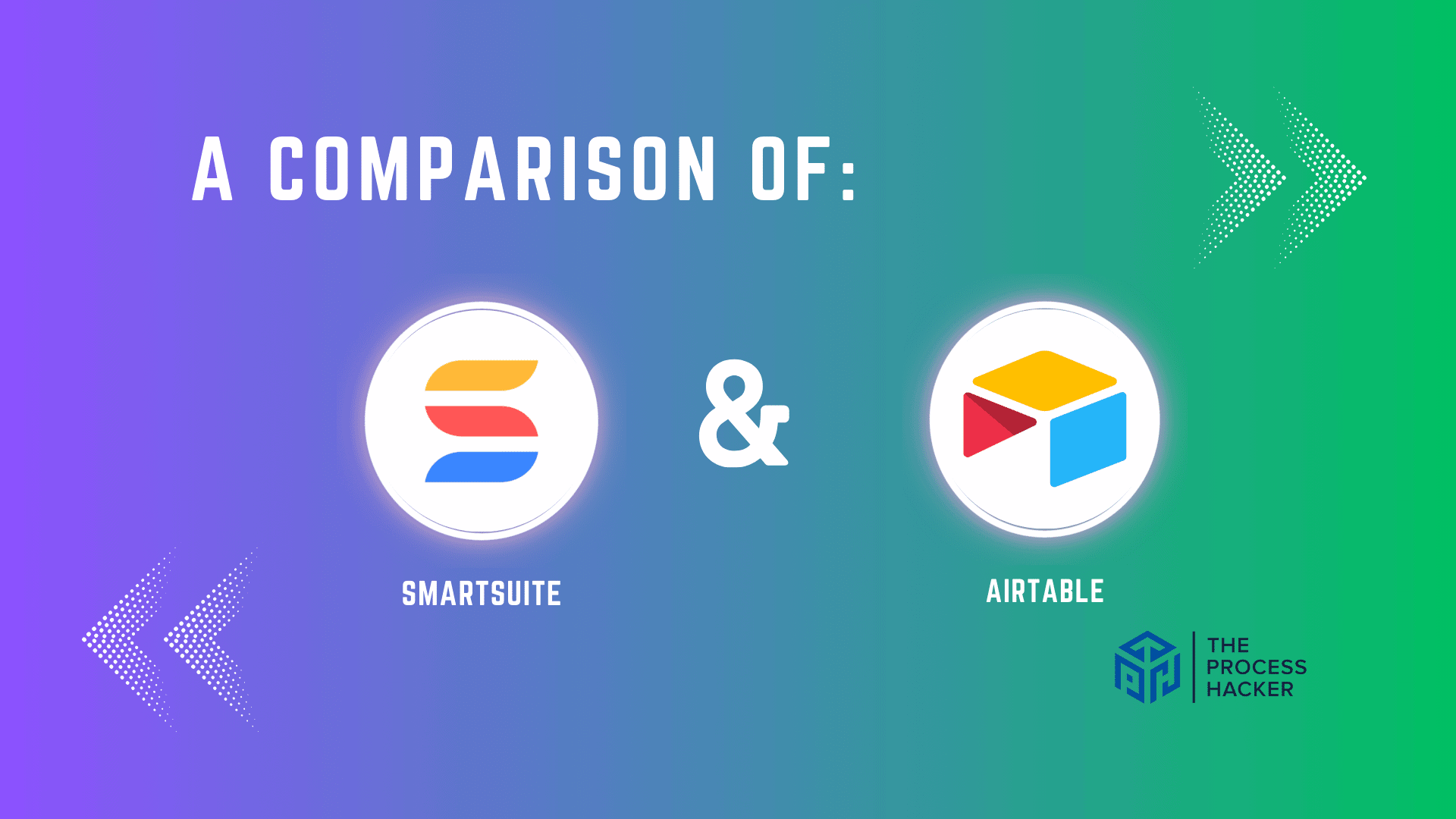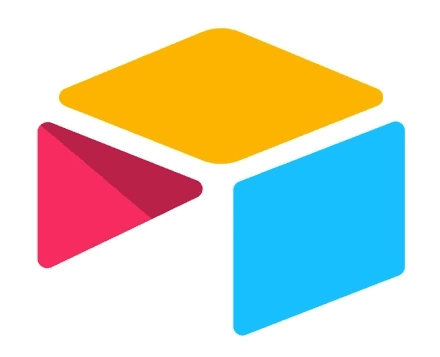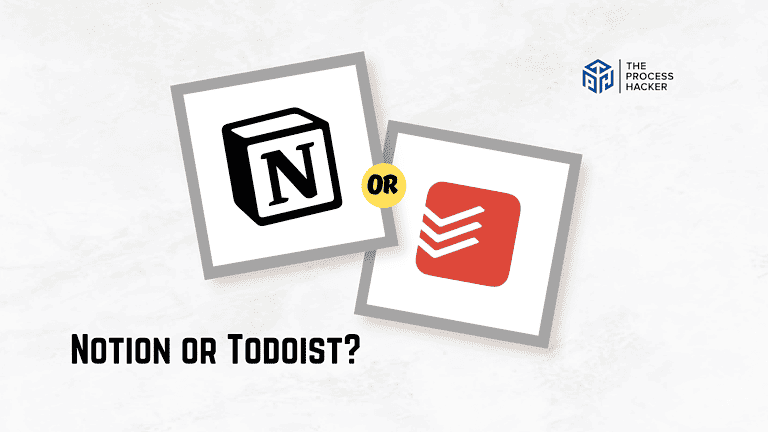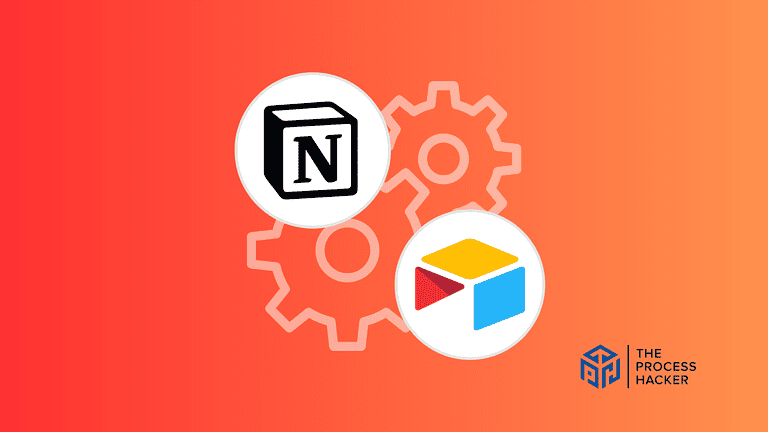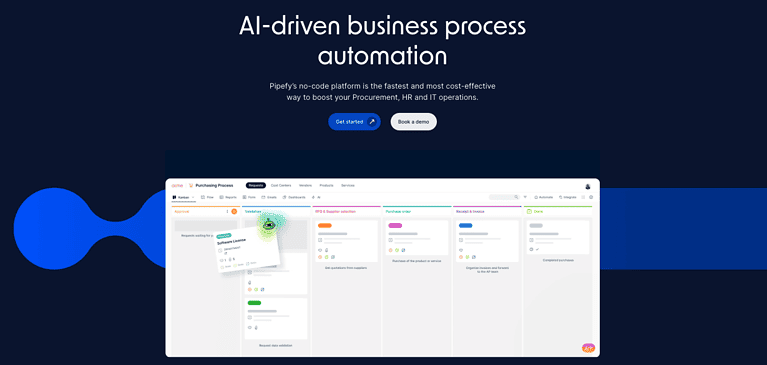SmartSuite vs Airtable: Which Project Management Software is Better?
Hello there! Are you trying to choose between Airtable and SmartSuite for your project management?
Being a project manager and consultant for years, I have tried and evaluated various project management software, including Airtable and SmartSuite.
If you purchase through our partner links, we get paid for the referral at no additional cost to you! For more information, visit my disclosure page.
In this article, we will look at the features, prices, how to use, help, and overall performance of both platforms. Let’s look at their strengths and weaknesses in different situations to see how they compare.
After reading this article, you will know which software is best for you, especially if you own a small business or work as a project manager.
Let’s begin our journey of discovery to help you decide between SmartSuite and Airtab.
Brief Overview: Airtable vs SmartSuite
First, I’ll give you a quick overview of Airtable and SmartSuite:
Airtable
Airtable is a cloud-based project management solution that offers functionalities such as task tracking, data visualization, and collaboration. It’s designed to provide a single place to view all your workflows and processes.
Key Selling Points:
- Highly customizable for task and data management
- User-friendly interface and dashboards
- Powerful filtering features
- Integration with popular apps like Slack, Google Drive, and Dropbox
- Supports various types of content, including text, images, links, and more
SmartSuite
SmartSuite is a comprehensive project management tool that provides a suite of applications, including word processing, spreadsheets, and presentations. It’s geared towards businesses looking for an all-in-one solution to manage their projects.
Key Selling Points:
- All-in-one solution for task and data management (includes applications for word processing, spreadsheets, etc.)
- Collaboration features such as real-time editing and commenting
- Advanced security features
- Integration with other business tools
- Provides detailed reports and analytics
- Easy-to-use dashboards
Quick Verdict: Airtable vs SmartSuite
Its adaptability makes it a versatile tool for various teams, though it may appear daunting to beginners initially.
Airtable focuses on content pipelines, product management, events planning, user research, and more. It is a comprehensive platform for project management and collaboration.
Airtable’s ability to manage different tasks and work well with other apps is widely recognized. This tool is an excellent choice if you want to simplify your project management processes. It has lots of options to customize and an easy-to-use interface.
SmartSuite is a work management platform. It helps plan, track, and manage workflow, data, and tasks.
SmartSuite is widely praised as an all-in-one solution promoting teamwork and collaboration. SmartSuite, a new competitor, has made significant progress and is being compared to Airtable’s early days.
Product Overview: Airtable vs SmartSuite
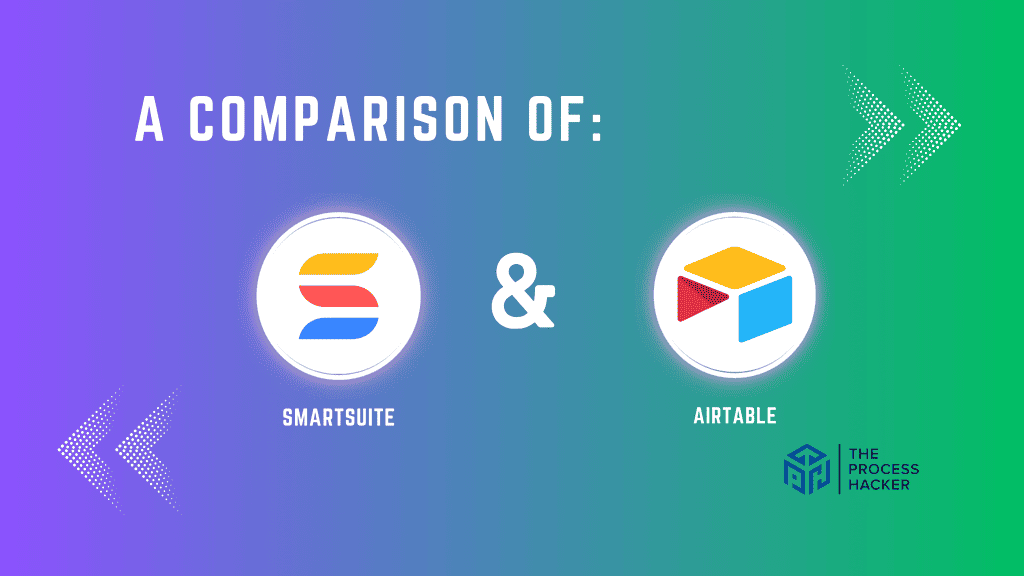
What is it?
Airtable is a dynamic platform that combines the visual simplicity of spreadsheets with the power of relational databases, giving you access to create, organize, and manage projects in various customizable views.
SmartSuite is an integrated business software suite that consolidates various organizational tools into a single platform, optimizing company operations and team collaborations.
Who is it for?
Airtable is best suited for teams and individuals looking for a flexible and intuitive workspace solution, from content creators managing editorial calendars to large enterprises coordinating complex projects.
SmartSuite is primarily designed for businesses aiming to centralize their operations, whether a startup seeking to streamline workflows or a large corporation aiming for improved inter-departmental collaboration.
What makes it special?
Airtable stands out for its high level of customization and its powerful filtering options. It supports various types of content, making it versatile for different project requirements. Furthermore, it integrates with popular apps like Slack, Google Drive, and Dropbox.
SmartSuite differentiates itself by offering a complete suite of applications in one platform. It also has advanced collaboration features such as real-time editing and commenting, robust security features, and detailed reports and analytics.
What does it do?
Airtable allows you to create custom databases, called bases, where they can add, organize, and manage data. It offers features where you can visualize your data in multiple ways, including grid, calendar, kanban, and more.
SmartSuite enables you to create documents, spreadsheets, and presentations and collaborate on them in real time. It also provides project tracking and management tools and integrates with other business SaaS web to streamline workflows.
Quick Comparison: Airtable vs SmartSuite
| Key Features | Airtable | SmartSuite |
| #1) Pricing | Winner | |
| #2) Free Plan | Winner | |
| #3) Ease of Use | Winner | |
| #4) Design & Functionality | Winner | |
| #5) Customization | Winner | |
| #6) Collaboration | Winner | |
| #7) Integrations | Winner | |
| #8) Customer Support | Tie | Tie |
| #9) Mobile Access | Tie | Tie |
| #10) Security | Tie | Tie |
| #11) Task Management | Winner | |
| Overall | Winner |
Feature Comparison: Airtable vs SmartSuite
#1) Pricing
Airtable starts at $24 per month and offers more advanced features than the free version. The prices increase with the Business and Enterprise Plans. These plans are meant for bigger teams and organizations.
SmartSuite offers a competitive price, starting at $12. This price is even more compelling because it includes unlimited users and solutions. It’s cost-effective for growing teams. They also offer Professional and Enterprise Plans for specific organizations’ requirements.
SmartSuite is a good choice for businesses with many users because it’s cheaper and includes everything they need. The unlimited users feature can lead to considerable savings for bigger teams.
Verdict: SmartSuite offers better value for pricing, especially for organizations with numerous users.
#2) Free Plan
Airtable has a “free forever” plan. It gives you unlimited databases and a 2GB storage capacity. You can also add up to 5 users. Small teams or individuals can use this as a starting point to explore the platform or work on small projects.
Conversely, SmartSuite also presents a “free forever” plan but restricts it to 3 users. It limits users but offers five solutions for different tasks or projects.
When you compare the two free plans, Airtable’s offer is better for teams because it allows up to 5 users. The 2GB storage is also enough for starting a database. SmartSuite’s limit of 3 users may be too restrictive for some teams. Yet, by adding five solutions, there is more flexibility in project management.
Verdict: Airtable provides a slightly better offering for the free plan, especially for teams with more than three members.
#3) Ease of Use
Airtable is recognized for its user-friendly interface, allowing you to set up a database in minutes. It offers a simple and intuitive experience, combining the flexibility of spreadsheets with the power of databases.
SmartSuite, while providing a comprehensive suite of applications, may have a steeper learning curve due to its extensive features. However, you will find it simple once you are familiar with the platform, you will find it simple.
While both products are designed with user experience in mind, Airtable edges out, emphasizing simplicity and quick setup. For those seeking a platform that is easy to get started with, Airtable might be the better choice.
Verdict: For ease of use, Airtable.
#4) Design & Functionality
Airtable boasts a clean, modern design that combines the visual appeal of cards, tables, and other view types. The platform’s strength lies in its flexibility. You can quickly shift different views, integrate various apps, and customize your workspace. Its design ensures both aesthetic appeal and practical utility. It makes a complex task or project seem straightforward.
SmartSuite emphasizes a streamlined, cohesive design approach. Its design ensures you don’t feel constantly switching between different products. The integrated nature of SmartSuite provides seamless transitions. It also offers consistent functionality across all its applications. This design creates a unified user experience.
For design, both platforms offer visually appealing interfaces tailored to enhance user experience. However, for functionality, SmartSuite’s unified approach provides an edge for organizations. That’s especially true if the company relies on multiple tools and wants a consistent experience.
Verdict: SmartSuite takes the lead with its integrated and consistent approach across multiple tools for design and functionality.
#5) Customization
Airtable is known for its unparalleled customization capabilities. You can customize databases to fit their needs, including appearance and features. Airtable offers a variety of field types, view options, and integrations. This lets you create a workspace that matches your project’s needs. It’s flexible for different industries and uses.
SmartSuite, while being a comprehensive suite of tools, also offers customization features. Businesses can customize the software to match the processes, connect with other apps, and automate workflows. What makes it special is that it gives you a personalized experience. It does this by working together with other things in its system.
SmartSuite can be customized, but Airtable has more versatile options. Airtable can be used for many purposes, like tracking tasks or managing projects.
Verdict: Airtable takes the lead for customization due to its exceptional flexibility and wide array of customization options.
#6) Collaboration
Airtable places a significant emphasis on team collaboration. You can instantly view updates with real-time syncing, ensuring everyone stays informed. Airtable has features that allow you to comment on records, assign and manage tasks to team members, and set up shared views of every project. These features enhance teamwork and make collaboration seamless.
SmartSuite takes a holistic approach to collaboration, given its integrated software suite. Your team can use different apps to talk, work together, and plan tasks and schedules in one place.
Both platforms have good collaboration features. However, SmartSuite has a slight advantage due to its integrated environment. Teams that want to work efficiently can enjoy seamless collaboration without switching tools.
Verdict: For collaboration, SmartSuite stands out, offering a more integrated approach that fosters efficient teamwork.
#7) Integrations
Airtable has more integrations, which can easily fit into most workflows. You can connect with other apps and services using its marketplace. This includes project management software and marketing automation platforms. You can customize Airtable to fit your needs by using its API and connecting it with Zapier.
SmartSuite is a group of software that works well together in its ecosystem. SmartSuite can collaborate with other platforms by integrating with popular CRM, marketing, and productivity software. This ensures businesses can bridge their existing SaaS web with SmartSuite’s capabilities.
SmartSuite has helpful links to other software. But, Airtable has more integration options and an open API, which gives it an advantage. This is especially beneficial for businesses relying heavily on various software and services.
Verdict: For integrations, Airtable emerges superior due to its extensive third-party connectivity and adaptability to unique workflows.
#8) Customer Support
Airtable helps companies with resources such as guides, videos, and a discussion board outside regular hours. Companies that choose premium plans get additional communication channels, like email and chat. These channels guarantee faster response times, which is vital during busy business hours.
SmartSuite understands the needs of companies in the digital age. They have a support team available during business hours and beyond. The team offers direct chat, email, and phone support. In addition, the platform provides self-help resources like FAQs, videos, and guides for those who prefer it. These resources give companies everything they need to use the platform effectively.
Weighing the strengths and features of both platforms, it’s evident that there’s a balanced offering from both when it comes to customer support. These are tailored to companies and their unique demands during business hours.
Verdict: For customer support, it’s a tie between Airtable and SmartSuite.
#9) Mobile Access
For those seeking seamless mobile access, Airtable provides a commendable solution with its user-friendly mobile app for iOS and Android platforms. The app mirrors the desktop experience, allowing you to manage your bases efficiently, tables, and records even on the go. This ensures that Android mobile users and their iOS counterparts have all the tools they need in the palm of their hands.
SmartSuite matches up with its dedicated mobile app, which is compatible with iOS and Android devices. The app offers a simplified yet powerful interface, prioritizing mobile access and streamlining data management. Unique features tailored specifically for mobile ensure that Android mobile users and iOS users have an optimized experience away from their desktops.
In the race to provide superior mobile access, Airtable and SmartSuite demonstrate a keen understanding of modern users’ needs. They’ve invested in creating robust mobile platforms, especially catering to the Android mobile community, ensuring you have uninterrupted access and functionality wherever they are.
Verdict: For mobile apps, it’s a tie between Airtable and SmartSuite.
#10) Security
Airtable takes security seriously, offering features such as two-factor authentication (2FA) and enterprise-grade encryption both in transit and at rest. They undergo regular security audits and comply with SOC 2 Type II standards to protect user data.
SmartSuite also emphasizes robust security protocols, with provisions for SSL/TLS encryption for data in transit and AES-256 encryption for data at rest. In addition, they have a dedicated security team that constantly monitors and responds to threats, ensuring a safe environment for you.
Both platforms have strongly emphasized security, recognizing its importance in the digital age. Their commitment to industry best practices and standards makes it a close call between the two.
Verdict: For security, it’s a tie between Airtable and SmartSuite.
#10) Task Management
Airtable offers a dynamic platform for task management, utilizing its unique blend of a spreadsheet database system. With Airtable, you can create a task and project, assign them to team members, set deadlines, and track progress using various views, for example, Grid, Kanban, and Calendar. Customizing fields and integrating with other tools gives you flexibility in managing a project.
SmartSuite provides a comprehensive task management system designed for collaborative projects. It has a user-friendly interface that enables easy creation, assignment, and tracking of tasks. The platform offers built-in prioritization, status updates, and reminders to keep teams aligned and efficient.
While both platforms offer robust task management features, Airtable stands out for its versatility and customization options, making it suitable for a broader range of applications. On the other hand, SmartSuite is more straightforward and might be preferred by those looking for a more conventional task management system.
Verdict: For task management, Airtable is the preferred choice.
Final Thoughts on SmartSuite vs Airtable
Both Airtable and SmartSuite offer robust features that cater to different user needs.
Airtable shines with its intuitive, user-friendly interface and customizable design functionality, making it a perfect choice for those who value simplicity and customization in their workflow.
On the other hand, SmartSuite offers a comprehensive suite of applications and features, making it a powerful all-in-one solution for businesses. Its robust functionality and diverse range of tools make it worth considering if you need a more extensive platform.
However, based on design, data functionality, excel-like capabilities, and user feedback, I highly recommend Airtable. It offers a balance of power and simplicity that you can benefit from.
Remember, the best tool is always the one that fits your specific needs and workflows.
So, take advantage of free trials, explore each platform, and decide which works best for you.

